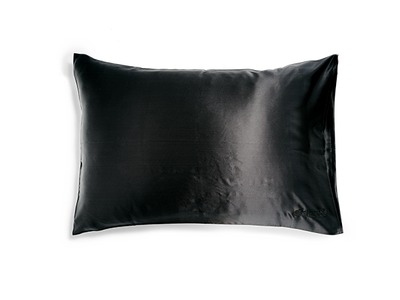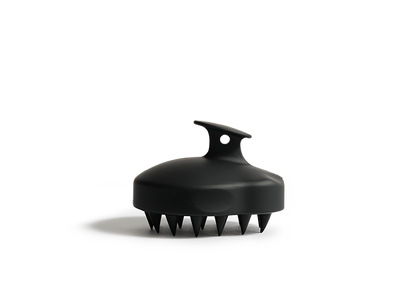Let’s talk scalp. Have you noticed hair loss, redness, dry, bumpiness, on your scalp? You’re not alone. In fact, millions suffer from varying conditions causing scalp discomfort.
Believe it or not, there are so many types of scalp conditions that people experience. Scalp health can be impacted by internal and external factors, and can even play a role into how hair grows. Seeing a dermatologist to uncover your scalp condition will always give you the most accurate results. However, if you want to gain a little insight on the four most common conditions, here’s an interesting read for you! Who knows, you may be surprised after reading this and notice some symptoms on your own scalp.
Sebborrheic Eczema
Have you ever noticed dry, red and flaky spots on your scalp? This type of skin condition is referred to as sebborrheic eczema, which can develop from different factors which include stress, illness and hormonal changes. Surprisingly, flakiness isn’t because of dry scalp, but is speculated to be due to the overproduction of oil and has been linked to a yeast that is within the oil. When there is an excessive amount of oil around a specific area, your skin becomes highly irritated causing it to become itchy and red. Sometimes the skin condition may also be triggered by environmental exposures such as pollution and certain personal care products.
Not to fear, sebborrheic eczema is not contagious but it can cause a lot of discomfort. There are different ways to treat this type of skin condition but it must be treated long term. If you believe that you are suffering from this condition, the best option would be to visit a dermatologist to find out what’s going on with your scalp.
Trichorrhexis Nodosa
Also known as bamboo hair, which is when the hair shafts are abnormal and hair strands begin looking very close to the knots of a bamboo stalk. When your hair strands feel bumpy and uneven, it is an indicator that you have bamboo hair. You can also tell by noticing the difference in the texture than other healthy strands. This type of condition is a disease called Netherton disease and it can be inherited by genetics. In fact, bamboo hair doesn’t only affect the hair on your head, it can also develop anywhere on the body with hair such as your eyebrows and eyelashes.
Scalp Psoriasis
Scalp Psoriasis is a chronic skin condition that is also known as autoimmune disease. It can appear very similar to eczema such as itchiness, redness, flaking, scaly texture and sometimes bleeding. It’s difficult to determine how it’s developed but is also very common. As a matter of fact, studies done by The American Academy of Dermatology found that chronic psoriasis affects the scalp in at least 50% of the people! While some may experience episodes of mild to severe symptoms, there are ways to treat the scalp. Many drugstore also sell medicated shampoo and conditioner that contain ingredients with vitamin D, retinoid, coal tar and anthralin that help with psoriasis but it may not be suitable for you. Always purchase one that’s recommended by a dermatologist who knows how to treat your scalp condition as everyone has different needs.
Alopecia Areata
If you’re experiencing bald patches on your head, you may have alopecia areata. It’s an autoimmune disease that causes hair to fall out resulting in hair loss. If you’re not sure whether you have this type of scalp condition one indicator is if you see clumps of hair in the shower or on your pillow. Researchers found that these episodes seem to be spontaneous and that alopecia areata occurs when your immune system mistakes your hair follicles for bacteria and germs, so they attack it. One thing that still hasn’t been discovered is what triggers these responses. Depending on each individual, some people find it harder to grow back hair while others have no trouble at all. Seeing a doctor to test your scalp and treatment would be the best way to treat these patches.
If you’re worried that you might be using the wrong type of hair care products, we do not treat scalp conditions. However, we do develop our very own custom-formulated hair shampoo and conditioner that uses real hair data. With this data we collect, we’re able to discover the best ingredients that best fit your own hair needs!

 The Starter Set
The Starter Set
 Reorder
Reorder
 Silk Pillowcase
Silk Pillowcase
 Scalp Massager
Scalp Massager


